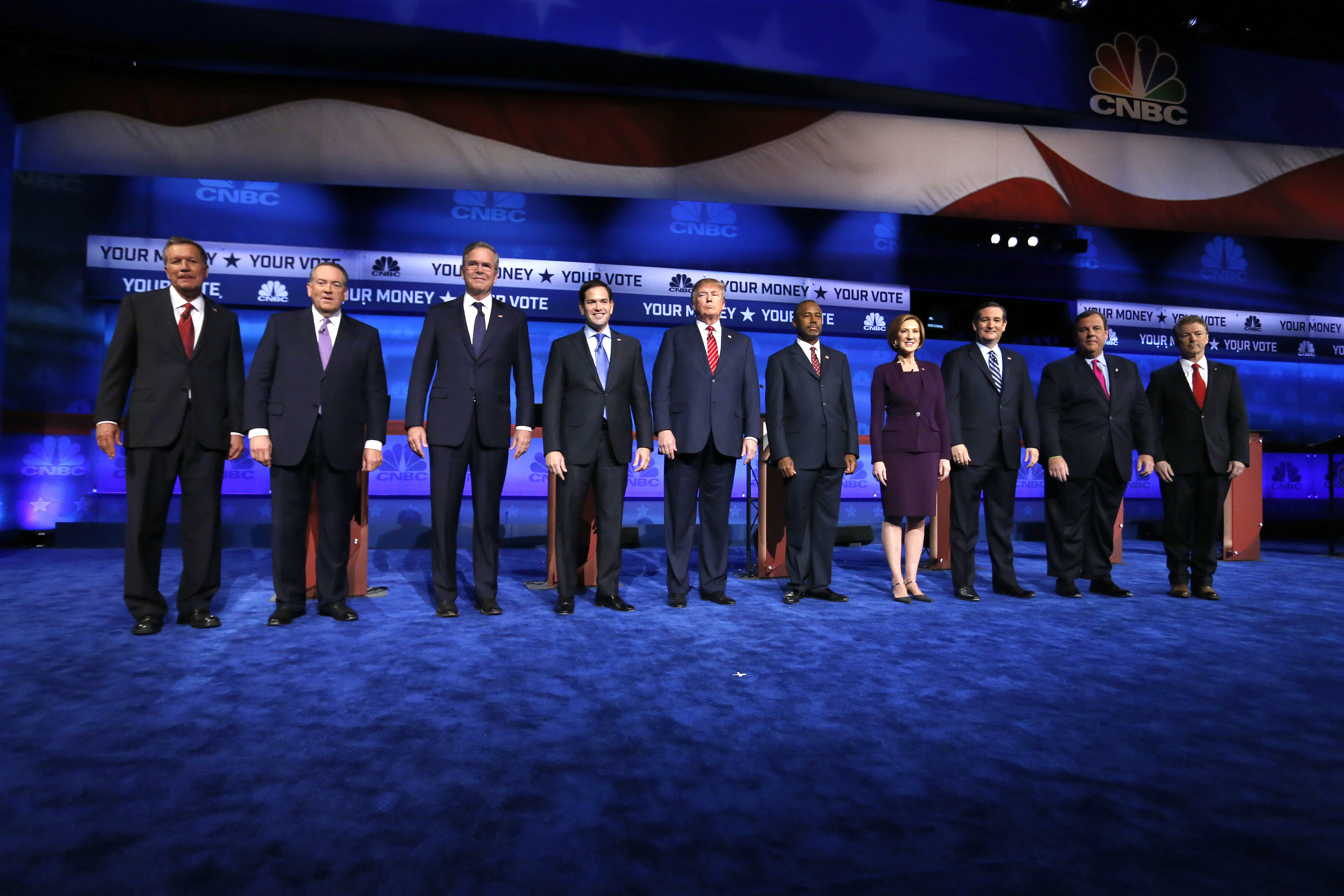
With a historically large field of contenders, Republican presidential hopefuls hit the campaign trail early this year and have been hitting it hard. But as they fan out from the early voting states of Iowa and New Hampshire, Colorado's mostly been fly-over territory.
That may not change much as the campaign advances to the state's March 1 caucus, because Colorado won't have much to offer Republican candidates next year.
The fundamental thing a caucus awards is delegates. But the state only has 37 of those, out of the more than 1200 needed for a convention victory, and they can't even officially state a preference for a candidate until much later in the spring.
Even small states though usually offer the chance to pick up some coveted good buzz if a candidate can win the caucus night preference poll. Except that earlier this year, the Colorado GOP decided to drop the poll, leaving campaigns with no way to claim victory.
Party leaders blame a rule change by the Republican National Committee. It requires that delegates in states with straw polls back the poll's winner.
"If you voted for a candidate who was no longer in the race come the national convention, you would be bound to vote for that person," Lynch said. "The delegates that we heard from didn't like that idea."
Part Of Party Rebellion In 2012
Colorado's 2012 delegation is actually part of the reason caucus rules are different for 2016.
Four years ago, a quarter of the delegates Colorado sent to the national convention supported Ron Paul, more than twice the support he got in the straw poll. In fact, those delegates refused to back Mitt Romney.
University of Georgia professor Josh Putnam tracks the presidential selection process and he says that moment was a small, but embarrassing, act of rebellion for the party, one it’s tried to keep from happening again.
"The RNC didn't want anything that took away from what has essentially has become a pep rally for both national parties," Putnam said.
Not Much Reason To Compete
The result though is that candidates have a lot less reason to compete for Colorado. And it shows. Many campaigns seem to have little in-state organization beyond a Facebook page. Still, former state party chair Ryan Call says grassroots candidates such as Senator Ted Cruz and Ben Carson are likely to find Colorado worth fighting for.
"Those are the candidates that are likely to benefit from a caucus model because they have a much more, maybe narrow, but certainly committed base of supporters that are willing to really put the time and effort in," Call said.
The caucus system may appeal more to insurgent candidates, but given that Colorado is often a swing state in the general election the state party hopes that will convince other contenders to campaign here too.
"The general election may very well run through Colorado and Nevada, so any grassroots effort that you form now will only benefit you if you are the inevitable nominee," said Colorado GOP political director Ryan Lynch.
Lynch says he's been fielding calls from numerous campaigns, trying to figure out how to make Colorado's complicated caucus process work for them.








